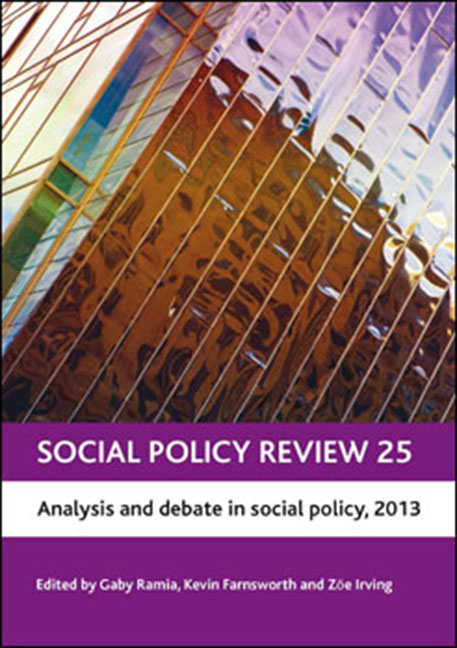Book contents
fourteen - Modernising social security for lone parents: avoiding fertility and unemployment traps when reforming social policy in Northern Europe
Published online by Cambridge University Press: 03 February 2022
Summary
Introduction
European family structures and labour markets have changed markedly over the last 40 years but social security reforms have lagged behind in responding to these changes in many countries. The share of lone-parent households in Organisation for Economic Co-operation and Development (OECD) countries rose from 5.5% in the mid-1980s to 8.1% in the mid-2000s (OECD, 2011, p 215). The extent of lone-parent households is even greater in Northern Europe. In the Netherlands, for example, one in four households with children are a lone-parent household. This amounts to half a million lone-parent households in 2011, up from 361,000 in 1995 (CBS, 2013). There is a general rise in the numbers of lone parents working, but the extent varies across Europe (OECD, 2011, p 215). In some countries, the number of lone parents working is minimal and only prevalent in the more privileged socio-economic groups, whereas in other countries, the number is much larger and more even across socio-economic groups. Mainly in Nordic countries, lone parents work to the same extent as other single persons, other parents or both.
In the context of ageing populations and pressures on public budgets, all countries want to raise employment, and thus also among lone parents. For this purpose, governments look to ways of modernising social security that are both employment- and family-friendly. For governments, learning from other countries is an obvious strategy in view of the large cross-national differences in the scope and distribution of lone-parent employment. Indeed, many cross-national differences in lone-parent employment may, in part, be explained by policy differences. For example, child family allowances intend to compensate for the costs of raising children, and even act as an incentive to increase fertility rates in some countries. Special allowances for lone parents may aim to secure a minimum income. Working family tax credits and care schemes may serve to motivate or assist parents to work. Housing benefits may serve to provide a minimum standard in housing and motivate higher fertility (McDonald, 2002, p 437) or perhaps target lone-parent households. In total, the various tax and benefit schemes make up complex tax–benefit packages that impact on lone parents differently even within a country, depending on what income they have.
- Type
- Chapter
- Information
- Social Policy Review 25Analysis and Debate in Social Policy, 2013, pp. 271 - 292Publisher: Bristol University PressPrint publication year: 2013



